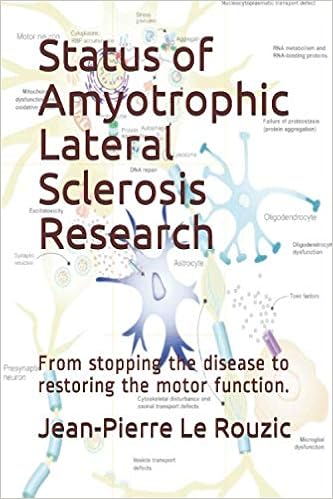Researchers of University of California at San Francisco, led by Karen Krukowski and Susanna Rosi have provided evidence for a direct involvement of the integrated stress response (ISR) in age-related cognitive decline.
 Cellular stress response is an umbrella concept for molecular changes that cells undergo in response to exposure to extreme temperature, viral infection, toxins, stroke or injury.
Cellular stress response is an umbrella concept for molecular changes that cells undergo in response to exposure to extreme temperature, viral infection, toxins, stroke or injury.
In response to cellular stress, mammalian cells induce coordinated cytoprotective programs that are critical for survival: the unfolded protein response and integrated stress response. On contrary the mammalian target of rapamycin (mTOR), is the other important pathway associated with growth, that cells employ to respond to insulin, growth factors, cellular nutrient and oxygen.
Those cytoprotective programs most of the time are slowing the cell activity to minimize damages while the stress condition happens. If the stress condition persists, the cell undergoes one or another form of apoptosis. Those manifest themselves in the form of denatured proteins and it is the detection of those denatured proteins that triggers the cellular stress response.
While aging, a decline in adaptive homeostasis affects the central nervous system (CNS), which results also in the appearance of non-native protein aggregates.
Nearly stopping cellular activity has indeed frightened consequences, for example many chronic illnesses such as Alzheimer, Parkinson or ALS are characterized by the apparition of unfolded protein aggregates. For example it is known since a long time that blocking protein synthesis prevents long-term memory storage (Flexner et al., 1962).
One signaling pathway that allows cell adaptation is the integrated stress response (ISR). The integrated stress response can be triggered by hypoxia, amino acid deprivation, glucose deprivation, viral infection and presence of oxidants. The main intrinsic factor is endoplasmic reticulum stress due to the accumulation of unfolded proteins.
As protein synthesis is critical for memory consolidation and the ISR pathway is one of the major nodes for protein synthesis control, so the scientists investigated how interference with the ISR impacted healthy age-related cognitive decline. To interfere with ISR, they used an ISR inhibitor on old mices. Stress signals can cause protein kinases, known as EIF-2 kinases, to phosphorylate the α subunit of a protein complex called translation initiation factor 2 (eIF2).
There are few ISR inhibitors, for example, Salubrinal is a drug which acts as a specific inhibitor of eIF2α and is primarily used experimentally, to study stress responses in eukaryotic cells. Proper functioning of eIF2α appears essential for preventing diet-induced type II diabetes.
The researchers used ISRIB (integrated stress response inhibitor) is an experimental drug which reverses the effects of eIF2α phosphorylation. It was discovered by the Walter lab at University of California, San Francisco (UCSF).
They trained aged those mice to escape from a watery maze by finding a hidden platform, a task that is typically hard for older animals to learn. But animals who received small daily doses of ISRIB during the three-day training process were able to accomplish the task as well as youthful mice.
Several weeks after the initial ISRIB treatment, they trained the same mice to find their way out of a maze whose exit changed daily. The mice who had received brief ISRIB treatment three weeks before, still performed at youthful levels, while untreated mice continued to struggle.
ISRIB treatment impacted T cell levels both in the brain and periphery. The changes in T cells and IFN responses directly correlated with cognitive performance and, again, were restored by ISRIB to the levels observed in young animals. One might think that interfering with the ISR, a critical cellular safety mechanism, would be sure to have serious side effects.
Some involved researchers say there is no side effects and that this is likely due to two factors. First, the scientists used too small doses for them to be toxic. Second, they say ISRIB is ineffective when there is a real threat to the cell.
One can ask how it would be possible that a powerful biological pathway used to mitigate cellular stress could be ineffective when there is a real threat to the cell?
Some information could be found in termination of the integrated stress response. The protein phosphatase 1 complex (PP1) aids in the dephosphorylation of eIF2α. However, dephosphorylation of eIF2α can also facilitate the production of death-inducing proteins in cases where the cell is so severely damaged that normal functioning cannot be restored.
As usual, while the scientific title is quite sober, the university PR publication is as usual enthusiastic "Drug Reverses Age-Related Mental Decline Within Days" even if this research has little chance to be translated in humans.
There are powerful commercial interests around ISRIB, as it has been licensed by Calico, a company exploring the biology of aging, and the idea of targeting the ISR to treat disease has been picked up by many other pharmaceutical companies.

